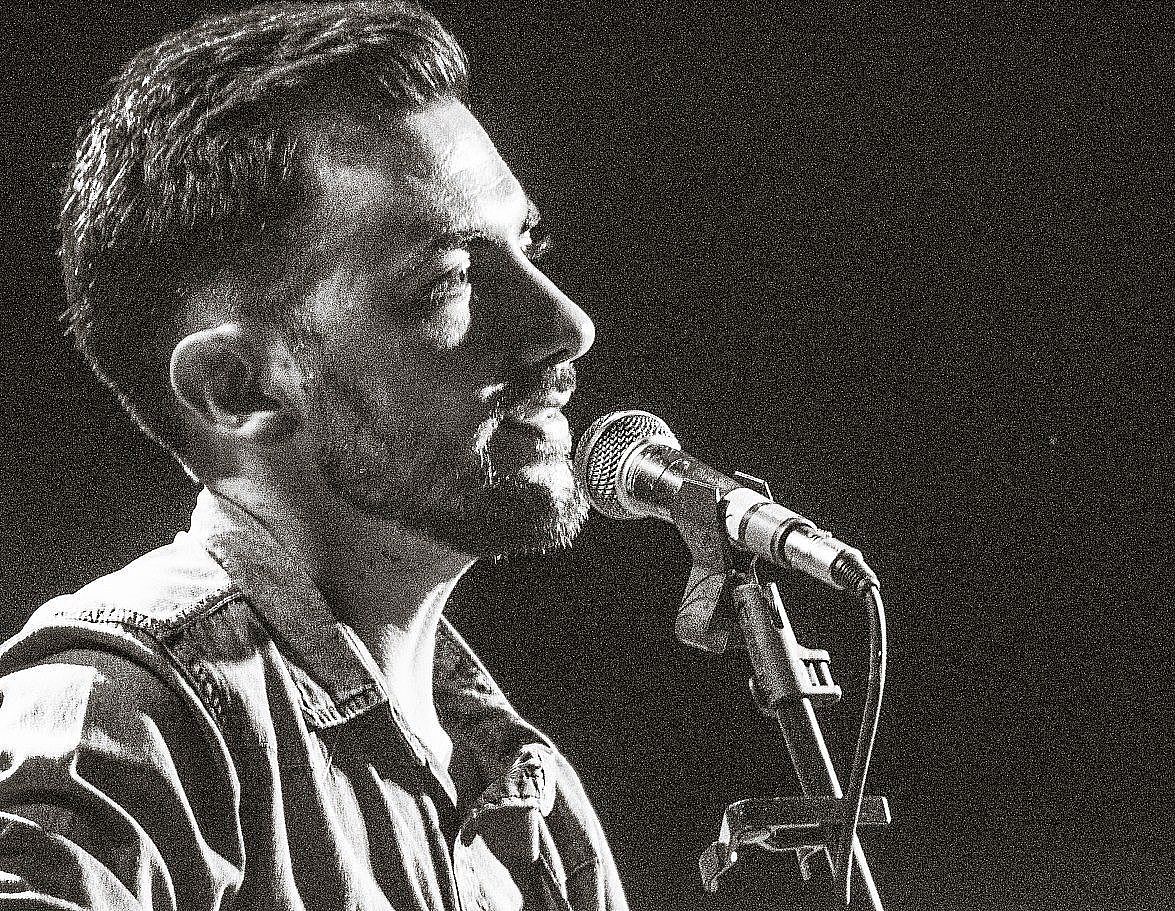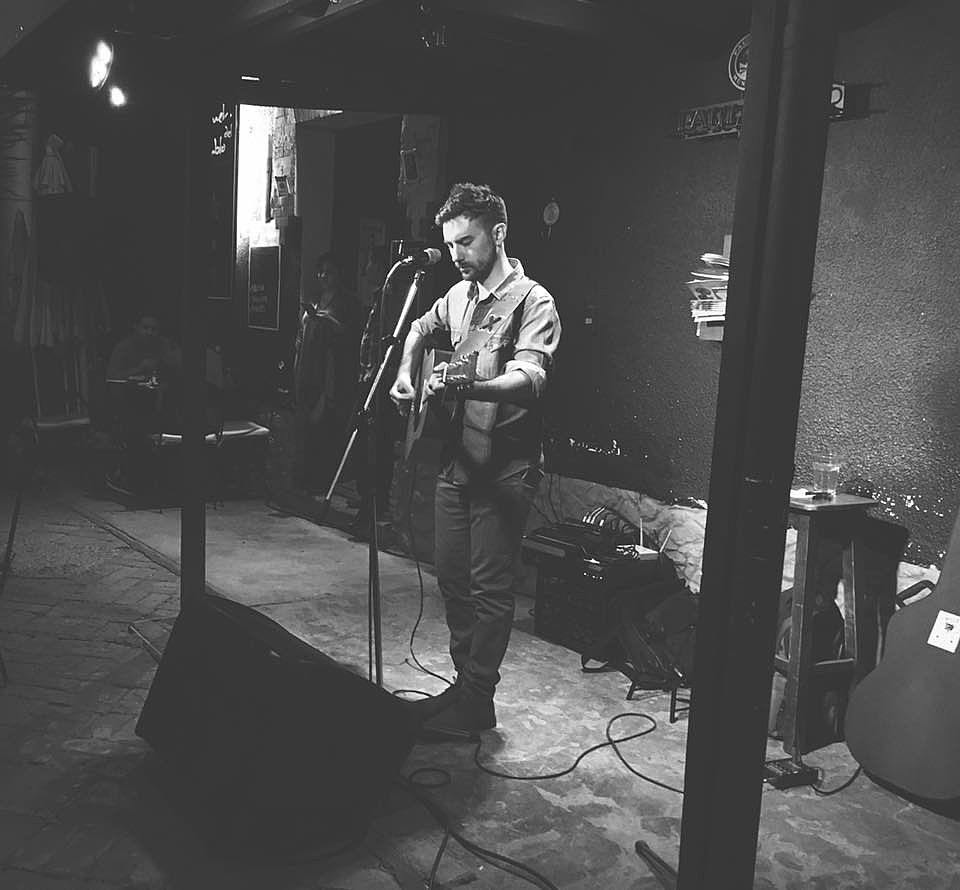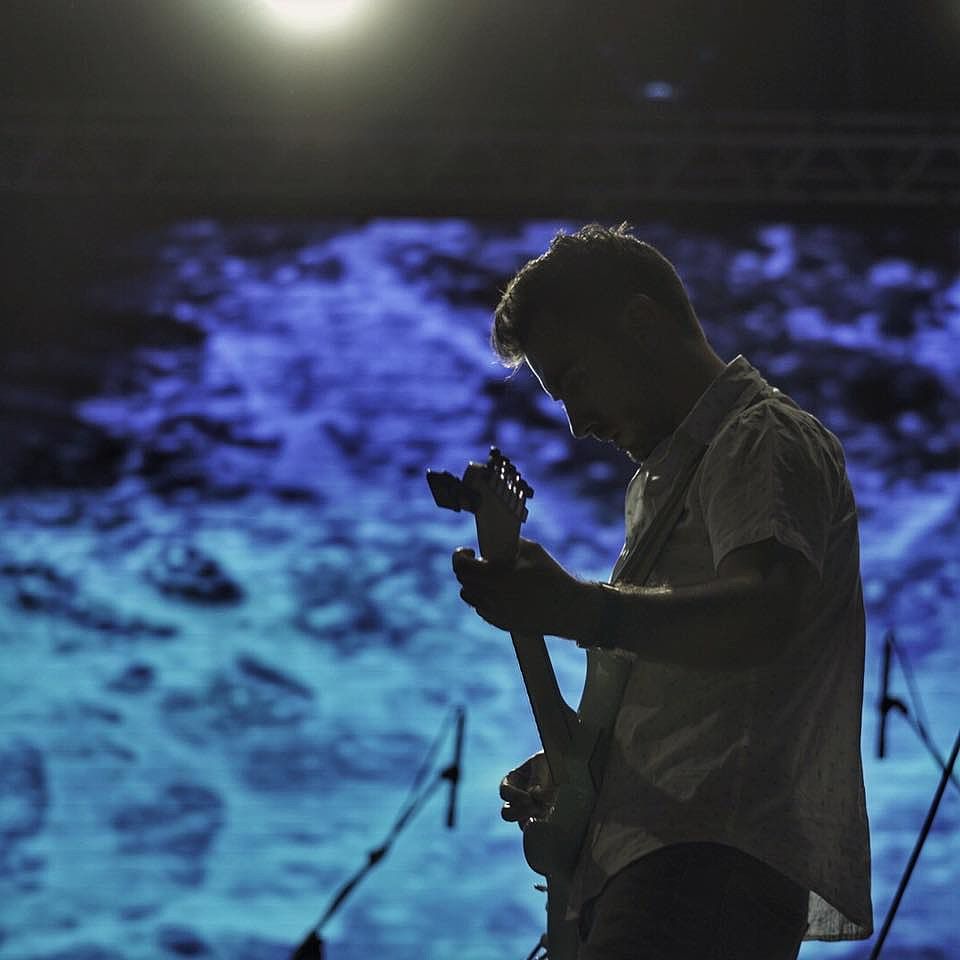Singer-songwriter Santiago Laserna on music as craft аnd catharsis
Santiago Laserna is a East Lansing, US-based musician who has been playing for 16 years. His music is permeated by influences like The Beatles, Eliott Smith, and Ryan Adams. The singer-songwriter is quite busy making a name for himself, but he found some time to answer the questions we have for him. It’s an interesting interview with a man who’s born a musician – here it goes!
Holla, Santiago! Tell us about growing up in Cochabamba, Bolivia and your journey to the United States and England.
I consider myself to be a citizen of the world, not necessarily identifying with nationalistic or traditional values. I like culture that can communicate globally, which is why I started making music in English in the first place, as it just might be the quintessentially global language for pop music. The fact that I learned English even before Spanish, coupled with the fact that 90% of the music I hear is in English, made this happen almost naturally. However, I have to admit the UK has always played a huge role in the aesthetic and sound of my music, and having the opportunity to spend a year of my life in Newcastle was certainly a dream come true, it’s such a culturally enriching environment.
How did music enter your life? And when did you realize making music is your true calling?
Music has always been there, thanks mostly to my parents, and more specifically to my mom, who is also a singer. The Beatles were always playing in the background, my older sisters would be watching MTV in its glory days (when they actually played music), so all of that formed in my subconscious I guess and stayed there. So when I picked up a guitar at 13 it all came very natural, especially the songwriting aspect of it. The minute I learned my first three chords was the minute I wrote my first song.
I guess I realized music was my true calling when people actually reacted in a very positive way to what they heard. It sort of reaffirmed my confidence and allowed me to say “Hey, maybe I’m not so bad at this.”
You have a finely honed acoustic pop sound – the kind where a producer’s touch is clearly evident. Did you craft your musical identity by yourself or are there knowledgeable people involved as well?
Over the years I’ve had the opportunity to work with very experienced producers, but I have to say that in all of these cases I have had to take authority over the final sound of the recording, mostly in my latest recordings. I knew what and who I wanted to sound like and I pushed until the producers could replicate a similar sound.
What are your musical goals, hopes and ambitions?
For music to be a self-sustaining activity. That it will allow me to keep writing songs and making records. Maybe some day even be able to record in Nashville.
You play regular live shows. How do your live shows go?
I love playing live music, especially when it’s with friends. I almost always try to find people to sing and play with and help reach out to a new audience. I love playing in an acoustic format and in small, intimate places. I think it allows the songs to shine on their own, without gimmicks.
What is it about the modern music industry that really irks you?
Not much to be honest. I think that the industry has always been a reflection of what mostly young people are craving for and demanding, so even if I don’t necessarily like some of the new stuff because it might sound too artifical or overproduced for my taste, it’s just a reflection of what another generation wants. To judge or criticize that would be the same as when our grandparents were condemning rock n roll or our parents condemning hip-hop. It’s just the way it is and everybody is free to listen to what they like, as well as to make the type of music they like.
Tell us about the collaboration with Beba Cespedes? How did it happen and how did it go?
Beba has always been a close friend of mine and music has sort of had the same effect on both of us. She has a lovely voice and I always wanted to do something with her, so as soon as I got a chance to record my first album I turned to her to help me bring new life into one of my songs, which was Love and Hate, from the first EP. People always respond positively to our duets.
What’s your biggest struggle in making music?
Finding time to sit down for a few hours and just fool around with the guitar. The older you get, the more responsibilities you have, and the harder it is to find time to do nothing and let the creativity start flowing.
What is your songwriting process – from inspiration to finished recording?
I always start with the music first, maybe a nice melody or chord structure. Then I write lyrics that can fit into that idea. Then I record a rough demo in my laptop using Ableton Live, and then, when I have the money, I bring that idea to the studio. Lyrics are always the most challenging part, but I love taking my time to make them work.
What is your most memorable moment related to music?
We have some really memorable performances with Chelo Navia of Oil (a bolivian rock band) with whom I sing Never Let Me Go, arguably my biggest hit. Maybe writing that song was one of the most memorable moments: I sat down as usual with my guitar in my flat in Newcastle but suddenly I was playing these strange chords that I don’t normally play and writing a chord structure that I don’t normally use, and when I started to sing over it I just knew that Chelo had to help me sing this song. It was a perfect songwriting moment that gave way to several memorable live shows playing that song, the audience always loses it when we play that.
How has being on Drooble helped your musical pursuits?
I’m still familiarizing myself with the platform but you can tell its made by people who know and love what they do and who really want to help you make the most of it. It’s a great concept, so I hope it just keeps growing and growing.






